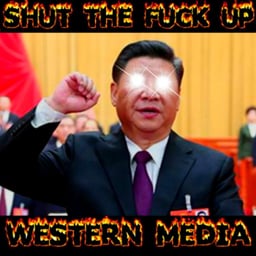Personally, I don’t support either Ukraine or Russia, I see Ukraine as harboring nazis and they should answer for their crimes in the Donbas. However, when Russia invaded Ukraine I saw it as an imperialist invasion for Putin to conquer Ukraine. After He annexed the Donetsk, Kherson, Luhansk, and Zaporizhzhia oblasts, this became a very blatant imperialist invasion. Secondly, I found this post, which talks about the Russian capture of Bakhmut. I was suprised about the number of people who supported Russia. Am I wrong here for not supporting Russia? I would love to hear you opinions on this matter.


I didn’t originate that idea, no. It came originally from a certain Marxist youtuber who these days mostly posts rightist nonsense, but who does ocassionally and almost by accident come through with some pretty good analysis. (I think we all know who I’m talking about).
Basically, the idea is you cannot revert to a lower stage of production in it stable form, because every mode of production reshapes the social and physical infrastructure of a country in order to suit its own needs. In the process, it annihilates the conditions which made the older and lower mode of production possible. You can only destroy the new mode of production in its positive essence by completely destroying the society within which it exists. Imagine a capitalist society which tried to revert to feudalism; the government could create create fiefs, name certain people aristocrats and others serfs, etc., but the whole thing would still be operating on an industrial or post-industrial base incompatible with feudalism. I think that on some level, the US ruling class understands this, which is why they tried to destroy Russia utterly during the 1990s – not just reorient its government and economic policies, but to commit genocide of the Russian people.
Thus the reversion to capitalism has been, in accordance with the general laws of historical progress, not the establishment of anything positive, but the destruction of that which positively exists. In most post-Soviet states, Ukraine for instance, this process has been carried almost to its logical conclusion, which is the complete destruction of a people: institutions under the thumb of NATO and the IMF, infrastructure deliberately destroyed, people either killed or forced to emmigrate. Hence we get the stereotype that “all Slavic men are gangsters and menial laborers, all Slavic women prostitutes;” for this is the role western capital has reserved them within the rich imperial core countries. In Russia, this trend has been mainly halted by Putin’s bonapartist government; this has been done through reestablishing state control over large sections of the economy, and forcing the oligarchs to work in chorus with the state. But the Russian economy remains a Soviet economy which has been colonized by the west. All the Putin compromise has been able to achieve is stability, stasis, since by freeing up a large portion of the economy from western domination, his government has created a counterweight to that part of the economic structure which is dragging Russia down. Putin, in other words, is like a doctor who halts or dramatically slows the spread of a disease, but does not cure it. In order to actually cure the disease, society and the Russian economy must again be allowed to function as what they really are – namely socialist; this can only be done by ending, once and for all, the colonization of Russia’s economy by the west.
Interesting perspective comrade, thank you for elaborating.